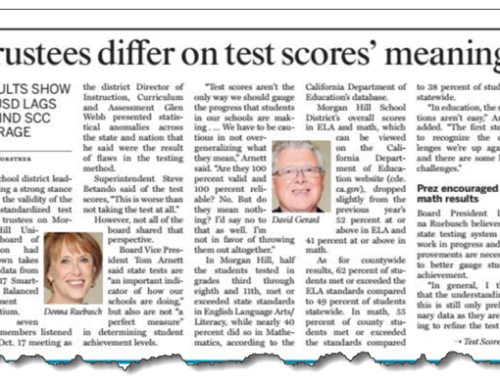Over the past 20 years, I’ve met at least 60 assessment directors among the 240 districts we served. When I asked them to tell me about their work, I was struck again and again by a common theme. Most of them felt misunderstood by their peers, and under-valued by their boss.

Assessment directors are navigators. Superintendents are captains of ships at sea. Do you have the navigator you need?
When I probed a bit further, and asked what the misunderstandings were about, and why they felt under-valued, this was what I heard: “Well, I can see why some believe testing is a four-letter word. What really gets me is that no one really understands what I do.”
In the CST era, when tests required test booklets and Scantron forms, assessment directors told me comments like this:
“My superintendent thinks I’m an overpaid shipping-receiving supervisor. All they see me doing during test season is overseeing pre-coded Scantron forms, and securing test booklets. Paper in, paper out, and every one of them needed to be accounted for.”
Now in this era of computer adaptive CAASPP assessments, test administration remains the visible part of the work. But now it’s the hardware, software and connectivity that’s visible.
“Why do they think I’m an IT director? The tech team here shoulders that work. Sure, they know I’m also here to make sure tests are given properly, that test results reach everyone, that kids who need retesting get retested. But why don’t they turn to me for interpretive support?”
What’s the hidden, high-value part of the job?
The unobserved parts of the assessment director’s job — the part that colleagues and the superintendent can’t see — are thinking and communicating. It’s making sense of the test results — discerning what the results might mean, after the “noise” is filtered out. This is human judgment and it is what makes test results useful. A correct, valid inference of the meaning of results make practical action possible. An incorrect inference just leads, at best, to wasted time. At worst, it leads to actions that cause harm.
The other part of the work of assessment leaders is communicating those inferences to principals and other instructional leaders. I have had the good luck to get to know one exemplary assessment veteran enjoy this part of her work, and fulfill those responsibilities with grace and to great effect. Ritu Khanna, Chief of Research-Evaluation-Assessment at San Francisco USD, told me she enjoyed this part of her work the most. She’d visit every one of the district’s more than 100 sites, and share her interpretation of the meaning of results with the staff and principal.
Recommending a reality-check: talk with your assessment director
Jill Wynns, a 24-year-veteran board member at San Francisco USD, has shared with me many stories of Ritu Khanna’s powerful presentations before the board. Her ability to share what she knows has helped many board members carry the right message to the public, and keep them from getting stuck in the weeds where assessment misunderstandings flourish. (I’m happy to disclose that Jill is a member of our K12 Measures PD delivery team.)
So superintendents, do you really know what your assessment director does in the course of her work year? Do you know what value she adds to your team’s understanding of the meaning of test results? Do you appreciate the importance of selecting quality assessments, and the essential need to educate leaders and teachers so they can interpret those assessments properly?
Or do you think your assessment director is mainly a manager of test administration … a pusher of paper … a math geek in charge of an unwelcome task? If this describes your views of your test director, let’s hope you’re just wrong. Because if you are right, then you are captain of a ship at sea without a navigator to guide you through hazardous waters. The happier alternative is that you’re wrong, and that you just don’t understand what your assessment director really brings to the work of leading curriculum and instruction in the right direction.
My recommendation … ask your assessment director what he or she does in a year. Listen carefully. Then ask what three factors matter most, and which factors are the ones he or she finds most rewarding. What you learn may surprise you.
(To learn what skills your assessment director should, at a minimum, command, take a look at the Master Standards for Data Use. You can read about it my blog post of July 2019.)






